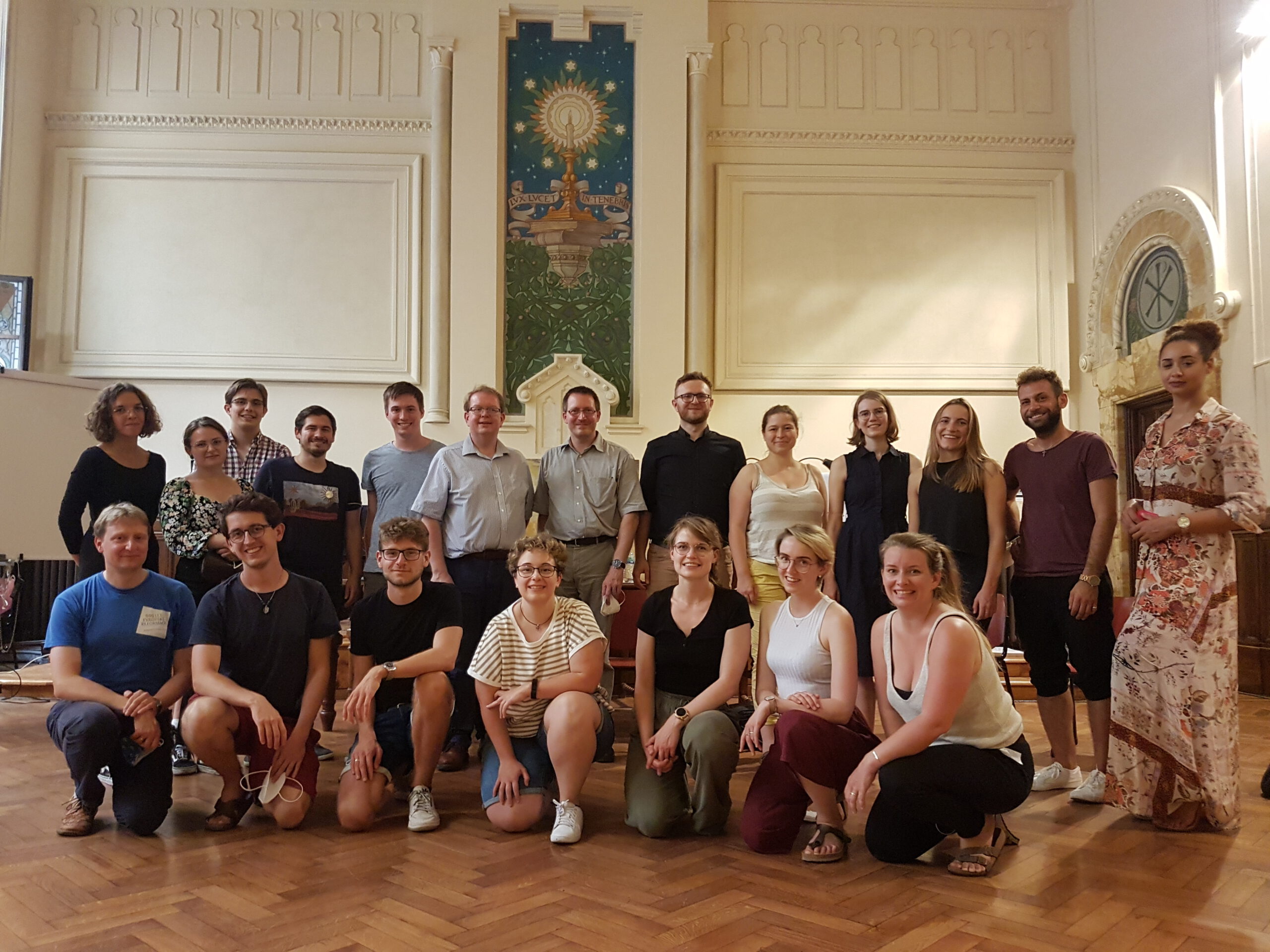Involving young people
Special assistants on Brussels Week
A week in Brussels is part of the programme of a special vicariate year at CPCE. For us, Kathleen Müller (K.M.) from the Lutheran Church of Brunswick and Marcus Hütter (M.H.), Evangelical Church A.B. in Austria, this experience took place from 20 to 25 June. Mario Fischer, General Secretary of the CPCE, accompanied us for the first few days and put together the programme. What we experienced there, whom we met, what we took away for our further (professional) life and what made this week a very special experience, we want to report – for this we interviewed each other.
Kathleen Müller: “Dear Marcus, you have been with CPCE since September 2021 as a special assistant and have accompanied and led various work processes – what made this week in Brussels so special in comparison?”
Marcus Hütter: “The Brussels week was a very special week, because it was so diverse. On the one hand, we met different people from the various partner organisations, on the other hand, we got a first-hand insight into how the EU Parliament works. So we saw how the multifaceted work of representing the interests of the churches in the EU is done and we learned to better understand the “other” or legislative side.”
M.H.: “Did a meeting with one of our partners particularly appeal to you or did one meeting in particular stick in your mind?”
K.M.: “For me personally, the meeting at Eurodiaconia with Anne-Sophie Wislocki was very meaningful. She is Head of Advocacy and has herself worked at CPCE. On the one hand, we were given an insight into how advocacy work works in the field of social diaconal institutions to bring their issues to EU decision makers. On the other hand, Eurodiaconia, like CPCE, is a membership-based organization. For me it was interesting to discover the parallels and the different possibilities of membership work.”
K.M: “Same question, which meeting was particularly memorable for you personally?”
M.H.: “Our last meeting with Katerina Pekridou from the Conference of European Churches (CEC) fascinated me. We discussed the restructuring and reorientation process also in the strategy of CEC. Katerina Pekridou is the theological executive secretary of the CEC office and is positive about the developments. On the one hand she discursively discussed the problems and difficulties of this process with us, on the other hand she pointed out the big vision of the strategy, which is to be seen in a more effective and also proactive advocacy work for the European churches.”
M.H. “Would you like to report briefly on what else we experienced during the week and who we met?”
K.M.: “With pleasure! It was a very full and enriching week. Our start of the visits began with a visit of the Chapel for Europe or Chapel for Resurrection with Father Krystian Sowa. He introduced us to the ecumenical and religious life of the international EU staff and their needs in their busy daily work. We also had an intensive meeting with Torsten Moritz, General Secretary of the Churches’ Commission for Migrants in Europe (CCME), who told us about the advocacy and networking work of their organisation. We continued to the EKD office in Brussels. There we met with the legal officer Eike Wiesner and Susanne Wander, advisor for EU funding policy, who reported on their work. Their task is to monitor the European legislative process and to represent the churches’ right to self-determination and their positions before the EU institutions. We had a short but interesting meeting with Michael Kuhn, Senior Advisor on Ecology and Sustainability for the Commission of the Bishops’ Conferences of the European Union (COMECE). Rev. Marianne Reysen from the CPCE Advisory Board on Education gave us a brief insight into the organization of European schools. And a visit to the Protestant Church of Brussels, also called the Royal Chapel, and site of the oldest Protestant congregation in Brussels, was of course not to be missed! The Reverend Laurence Flachon gave us a warm welcome there. And last but not least, we were given a private and authentic tour of the EU-Parliament by Lawrence Urbain, a participant in the Young Theology in Europe Forum, who works in the Parliament.”
M.H.: “As you were speaking, it struck me that it is, I think, no coincidence and says something about the special nature and self-understanding of CPCE as a Community (!) of Protestant Churches in Europe, that our programmed in Brussels [organised by Mario Fischer, CPCE General Secretary] did not begin with a visit to an interest group, but with the Chapel for Europe, which is about the common life of the Christian faith, being church together in reconciled diversity”.
M.H.: “What do you think about the advocacy work in Brussels?”
K.M.: “There is a lot of networking between the church organizations that do advocacy work at the EU institutions. All in all, they all work together for a unifying cause before the EU institutions: on a biblical basis, they pursue a social advocacy role and stand up for disadvantaged people and the positions of the church(es). In doing so, they support each other, exchange ideas, use synergistic forces. Together they can thus be a stronger voice before the EU legislative institutions.”
K.M.: “What did you learn for your future work in the church?”
M.H.: “I was encouraged to see that in church advocacy work, too, cooperation and networking is more effective and makes more sense rather than fighting for oneself or stewing in one’s own juice. As church, we bear responsibility on a local level and for society as a whole and must look beyond the narrow confines of our church walls. This works better and, in my opinion, corresponds to the Christian faith, to set out together with church and non-church partners to be a church with and for others.”
Thanks a lot for the impressing week!
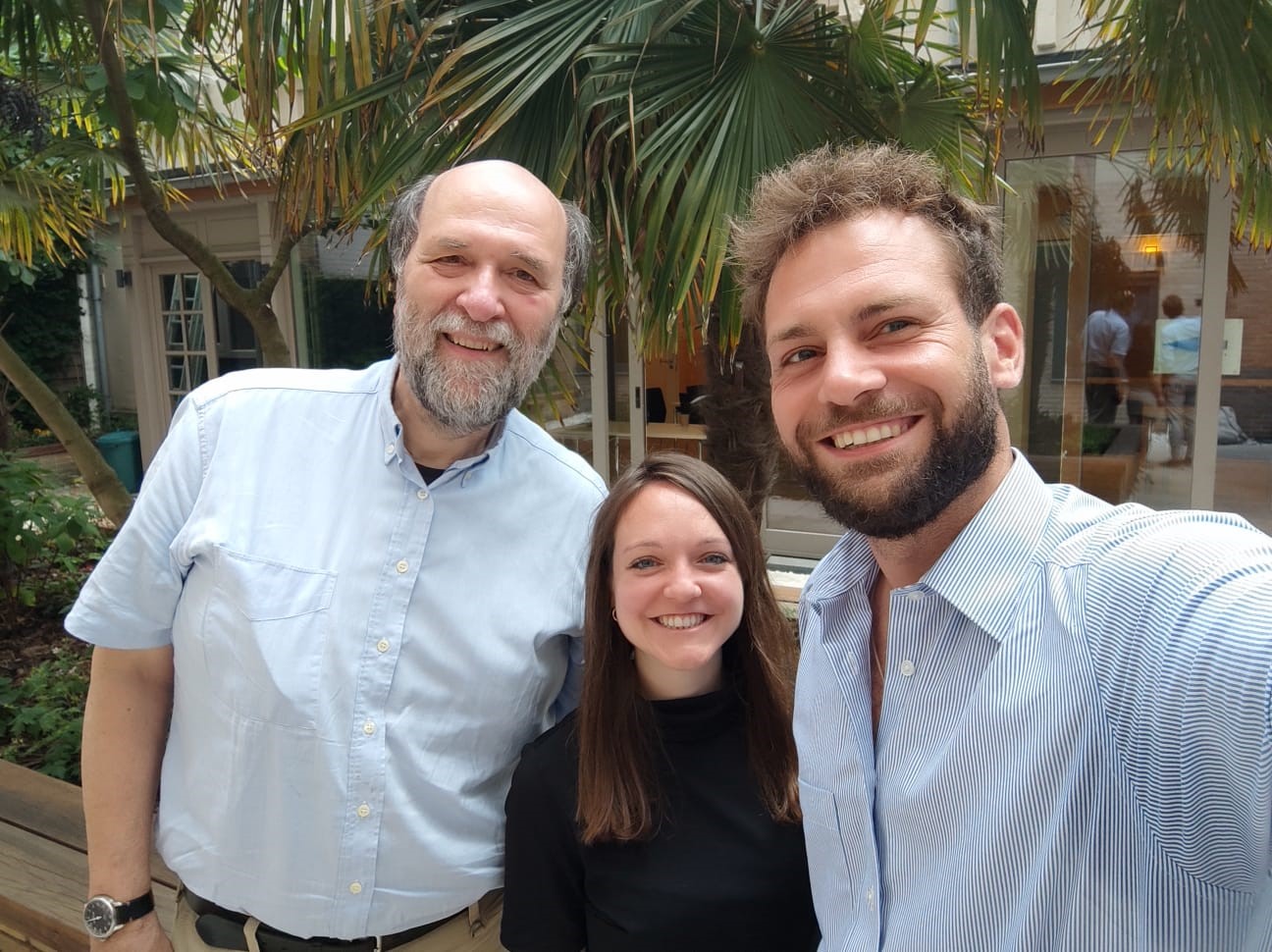
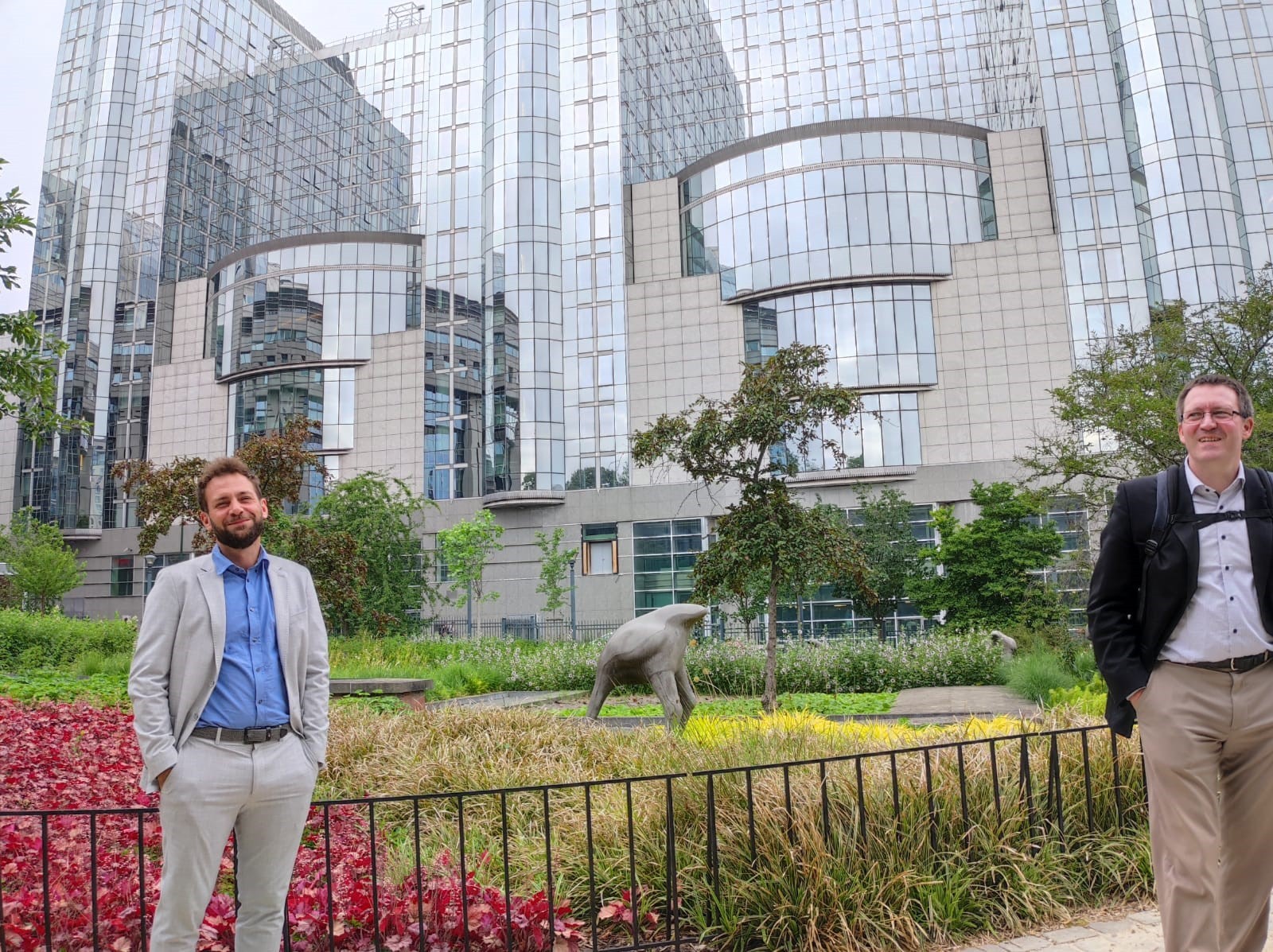
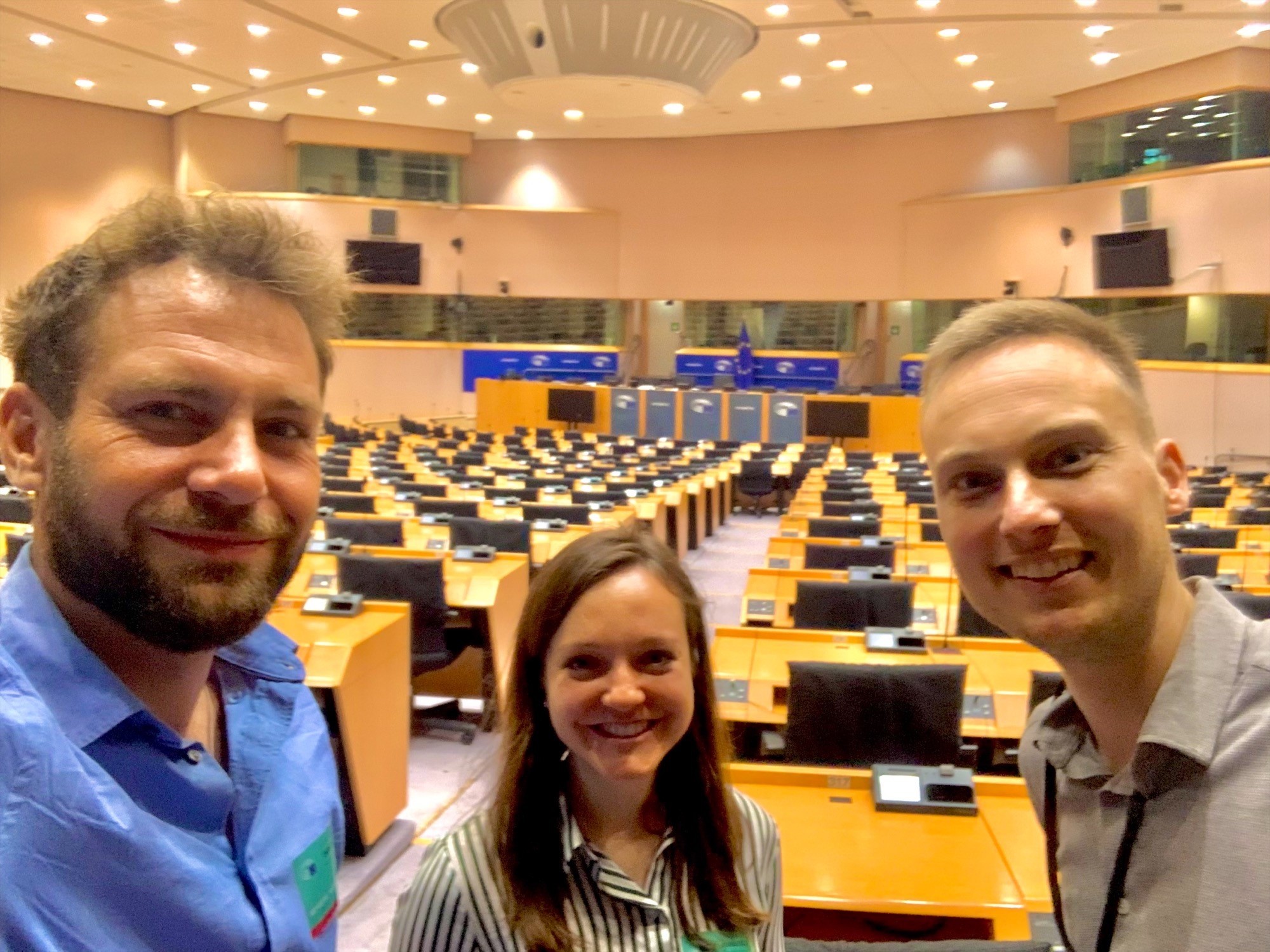
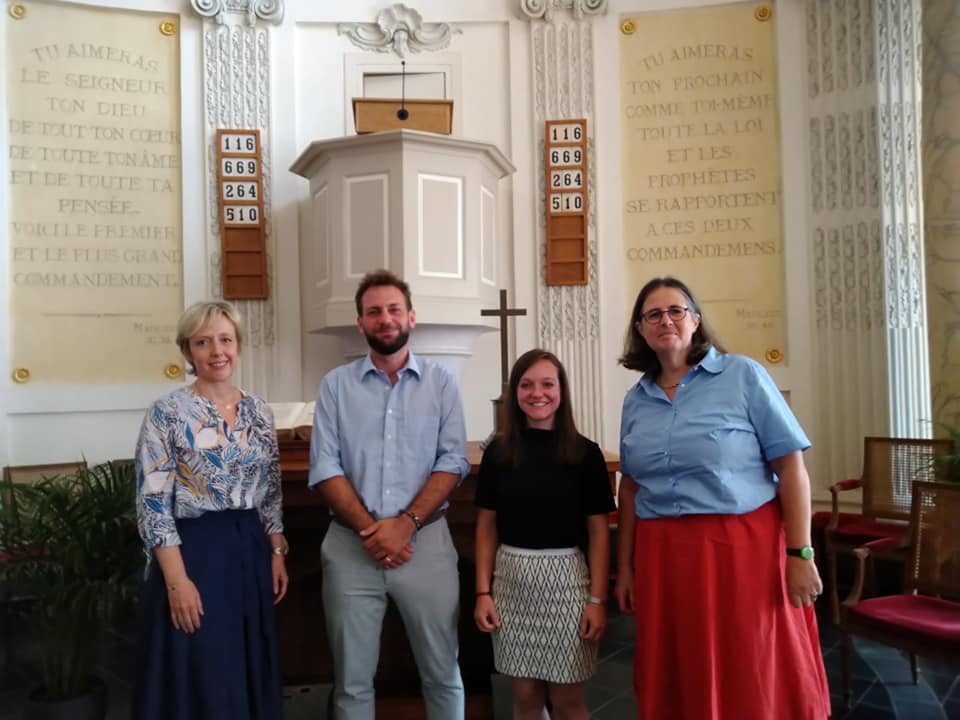
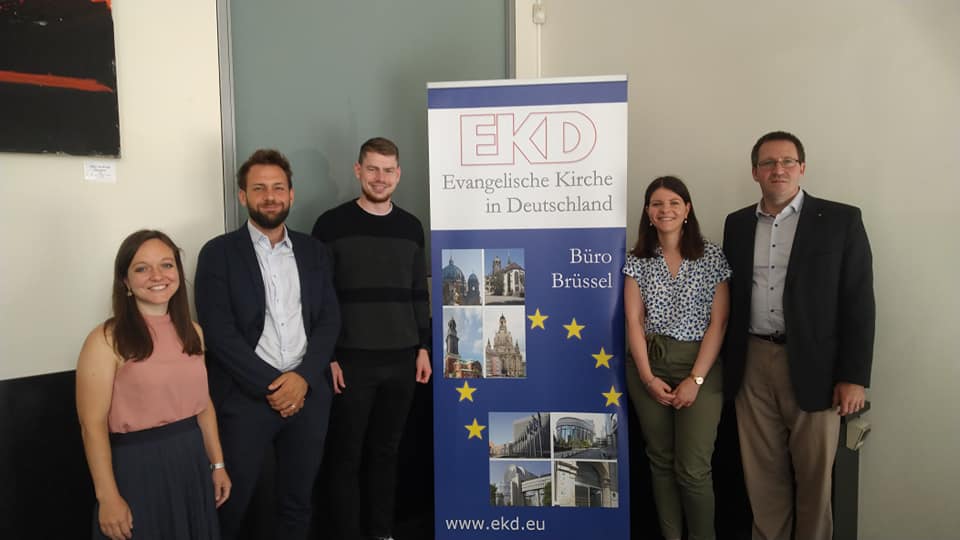
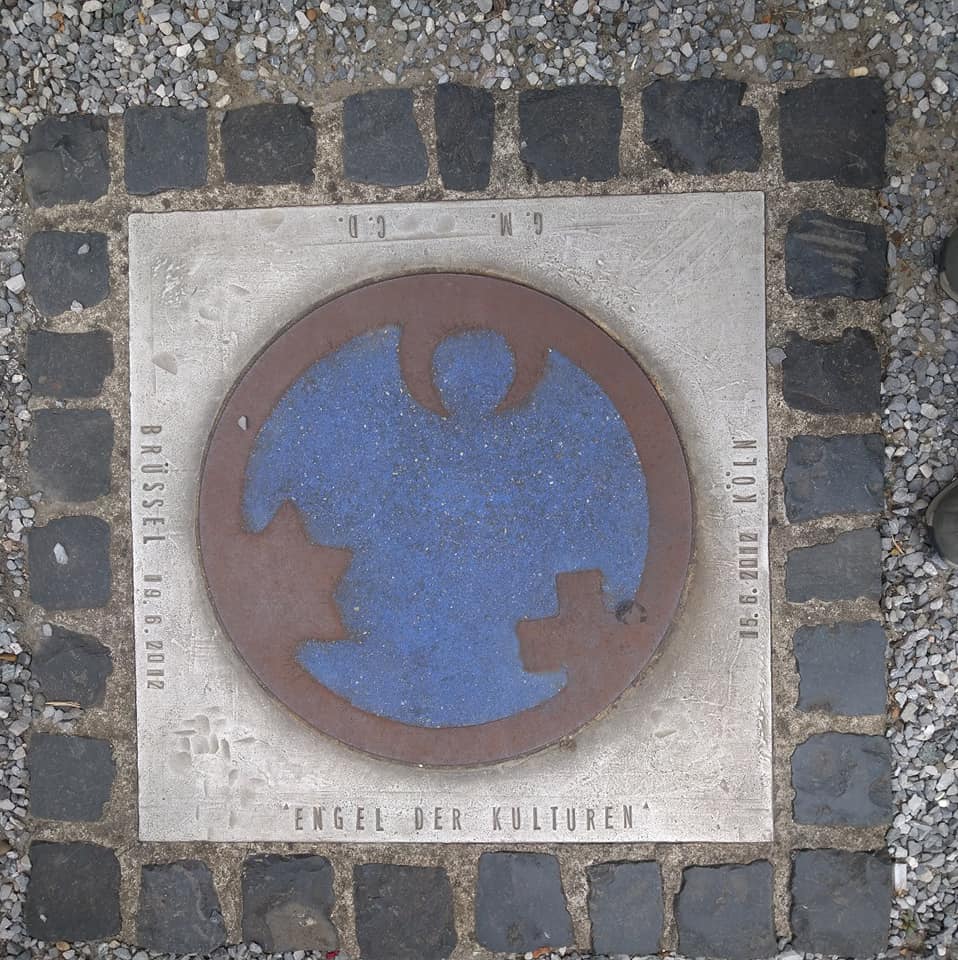
What is the Young Theologians in Communion reference group?
The Communion of Protestant Churches in Europe involves young people in its work. Besides special collaborative events, in summer 2020 the Council of the CPCE launched a programme called Young Theologians in Communion, appointing a number of young theologians aged between 21 and 35 years from 15 churches to a reference group.
This new line of approach supports the CPCE’s aim of involving young people in the collaborative thematic work conducted by the Church Communion. In online conferences, the young theologians kicked off their collaborative work by familiarising themselves with the CPCE and learning about its history, the cornerstone texts, and a number of its member churches. During group video conferences, they presented their own churches to the others, thus revealing the major differences within European Protestantism.
After one year of online meetings, we were very glad that a study conference could take place in Rome (September 2021), including presentations of the CPCE’s current work (doctrinal conversations, topics, activities) to the group. The members participate in different fields of work, giving them a chance to comment critically in their role as a reference group. This ensures that the voice of the young generation is heard in different processes, e.g. during the early stages of draft resolutions that will be presented to the CPCE’s committees.
These young people are all volunteers in this endeavour that will enable them to experience the diversity of European Protestantism and simultaneously establish an important link between the CPCE and their respective churches.
In addition to this programme, the CPCE is collaborating on theological training with the Centro Melantone in Rome and the Centre for Eastern Protestant Theology (ZETO) in Sibiu, with the aim of encouraging Protestant theological studies in predominantly Catholic and Orthodox environments.
